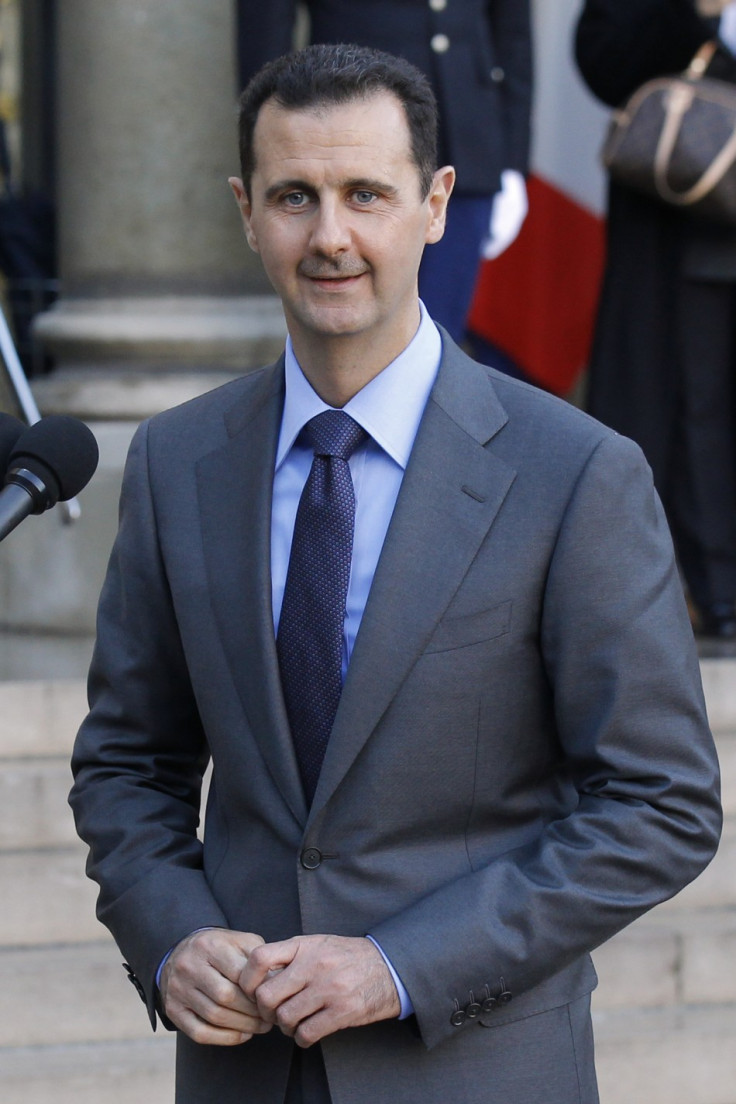Saudi Condemnation of the Violence in Syria: Is the Hariri Killing Coming Back at Assad?

King Abdullah of Saudi spoke out and condemned the Syrian situation and issued a written statement saying it was "not acceptable".
The statement also urges the Syrian regime to make concessions to the opposition and implement them.
"Syria should think wisely before it's too late and issue and enact reforms that are not merely promises but actual reforms," he said.
King Abdullah said he was recalling Ambassador Abdullah Al-Aifan for consultation on developments in the troubled Arab nation.
"Syria should think wisely before it's too late and issue and enact reforms that are not merely promises but actual reforms," he said. "Either it chooses wisdom on its own or it will be pulled down into the depths of turmoil and loss.
"The events are grave and cannot be justified, and this has resulted in the loss of large numbers of lives and left many injured. This cannot be contemplated by any sane Muslim, Arab or other human being," he said. He added that all should be aware that what's happening in Syria cannot be condoned by Islam.
"The future of Syria lies between two options: either to choose a course dictated by wisdom, or drift into the depths of chaos and loss, God forbid," King Abdullah said.
"Syria knows the Kingdom's stand with it in the past. Today, the Kingdom demands a stop to the killing machine, and the shedding of blood, and a rational approach to bring the situation under control. Before it is too late, Syria must launch reforms that are not mere promises but actually realized, so our brothers in Syria can feel it and live it with ... dignity ... and pride ..." he added.
Despite an international outcry and a new UN resolution, the Syrian security forces continued the crackdown on protestors as violent clashes were reported in the city of Deir-el Zour, in the east of the country, where more than 50 people have been killed in the past few days, according to activists.
An estimated 1,700 people have died in anti-government protests over the last five months with more than 300 deaths reported in the last week alone.
However despite the rising death toll, the Syrian regime, led by Bashar al-Assad, continues to deny any wrong doing, blaming the violence on 'armed gangs' and the President even defended his security forces' actions.
"Syria is on the path to reform," he was quoted as telling Lebanese Foreign Minister Adnan Mansour by the state news agency, Sana.
"To deal with outlaws who cut off roads, seal towns and terrorise residents is a duty of the state, which must defend security and protect the lives of civilians," he added.
King Abdullah's warning came as the international community tries to up the pressure on President Assad with some countries even saying his government has lost legitimacy.
The Arab League however has been criticised for failing to take a strict stand and despite the Secretary-General Nabil Elaraby urging the Syrian authorities to refrain from using violence against peaceful protesters demanding political reforms in a statement over the week-end, analysts explain that too little has been done.
Syria has not enjoyed the closest relationship with many of the country in the region. The Baath party ruled by the Alawite minority and accused of oppressing the Sunni majority was often seen as a menace for much of the Arabs neighbours, who feared its hegemonic ambitions.
While Saudi was in the past one of Syria's most solid allies, the February 14 2005 assassination of former Lebanese Prime Minister Rafiq Hariri, however, which many blamed on the Assad regime, caused frictions throughout the region.
The Saudi Royal Family allegedly had close ties to Hariri and was particularly affected and upset by his death. As a consequence, many said the Saudi-Syrian diplomatic relationship never fully recovered from the affair.
While the Saudi regime invested large sums of money in the Syrian-occupied Lebanon after the appointment of Hariri, cooperation was hindered by his killing and analysts insist that while Hafez, Bashar's father was feared by many, his son never had the same political influence in the region.
Saudi however is the first Arab State to take such a stand and strongly condemn the violence and the Syrian regime itself. While analyst say the breakdown of relations since the Hariri murder influenced the Kingdom's attitude, it will be interesting to see if other Arab countries follow suit or if Assad despite claims of the contrary, still is very influent in the region.
© Copyright IBTimes 2025. All rights reserved.




















